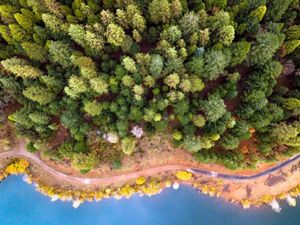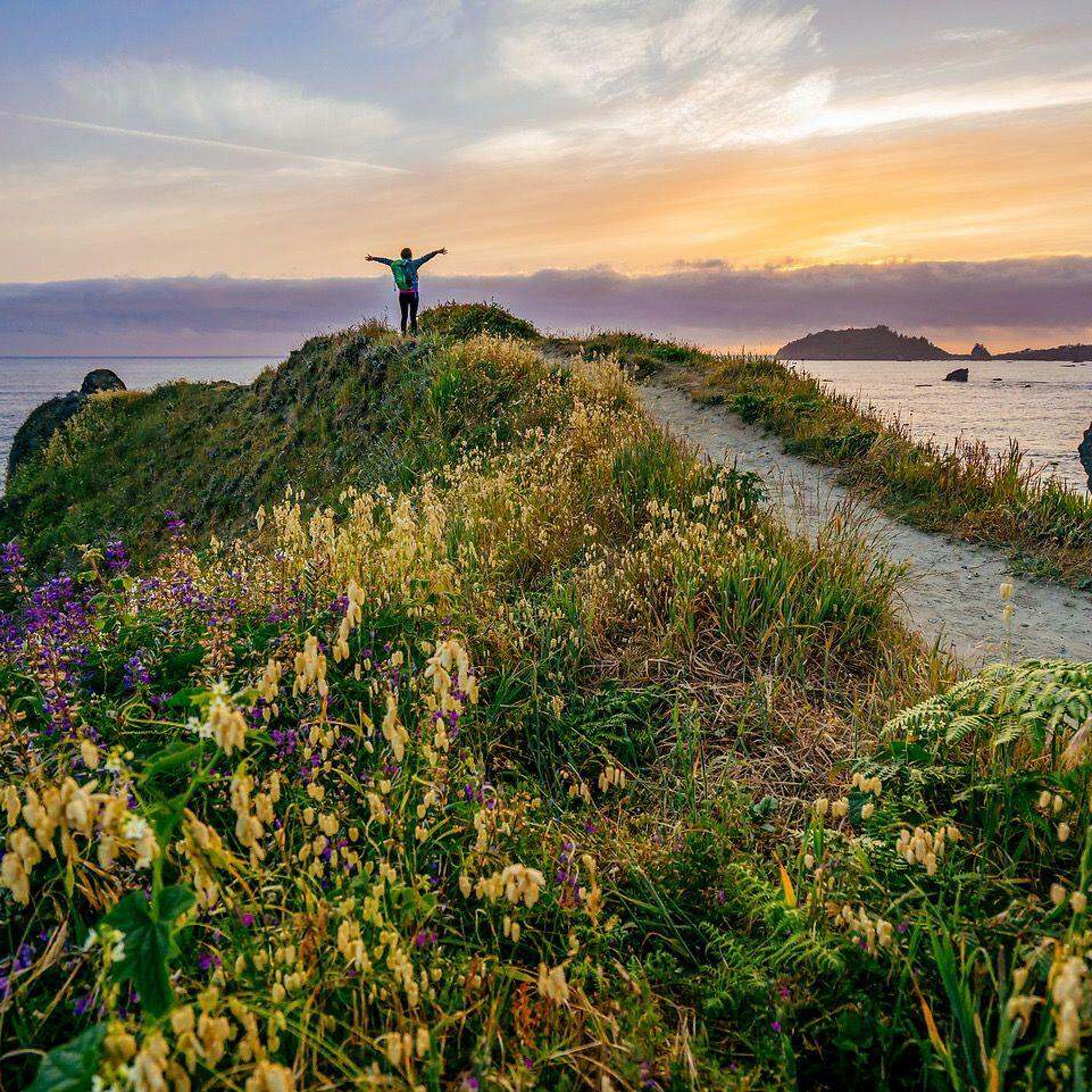
The Year Ahead: Young Professionals Predict What 2024 Will Bring for Our Planet
Fresh perspectives from conservation’s present and future.
It’s 2024—and if our math is correct, we’re now just six years out from 2030, a year on which we’ve pinned huge ambitions for our climate and planet. But with a new year comes fresh momentum for achieving those ambitions.
In past years, we’ve asked our leading scientists and policy experts what they expect for the year ahead. But this year we did something different.
We turned to young and emerging professionals within The Nature Conservancy and other organizations worldwide for their insight into what 2024 will bring. We heard from scientists and students, accountants and energy experts, and graduates of our externship program.
What do they expect across conservation and the climate in 2024? What gives them hope? What worries them? How are they taking action?
Their perspectives not only help us prepare for a critical year in taking on the climate and biodiversity crises, they assure us well beyond 2024.
Here are seven main themes and some of the voices behind the responses.
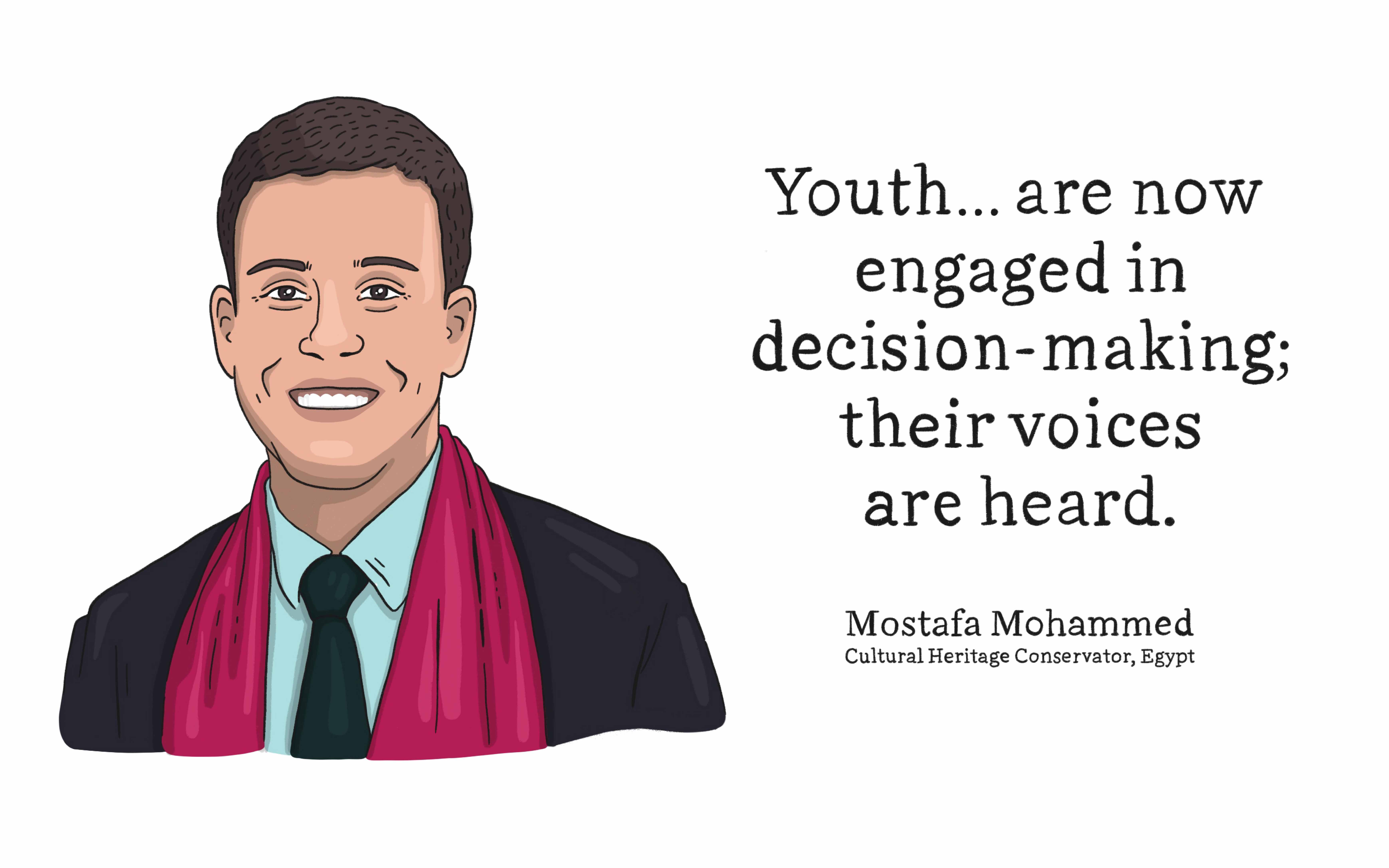
Our global insights, straight to your inbox
Get our latest research, perspectives and solutions to today’s sustainability challenges.
Sign upYouth are stepping up for nature and into leadership.
Young people didn’t create the environmental challenges the world is facing now, but they’re eager to gain more ownership in solving them.
That’s good for everyone. Young people have tools and qualities that can help them take on these immense challenges: educational foundations in systems thinking, digital media fluency and the experience of growing up in a world where climate change is a mainstream issue.
Through activism and advocacy, they’ve already shown how influential they can be in advancing climate action. Now, they’re rising in workplaces and breaking through in the political and civil society arenas.
I see more and more young people getting involved, and it makes me feel so proud and happy that we might have the chance to keep enjoying our shared home.
—Marianela Pepe, Chemical Engineering Student, Argentina
Youth ... are now engaged in decision-making; their voices are heard, and a lot of them are aware of the importance of saving our world and being green in our lives.
—Mostafa Mohammed, Cultural Heritage Conservator, Egypt
I believe that youth engagement will only grow as 2024 approaches, and youth understand what is at stake.
—Sean Schrader, MBA Candidate, USA
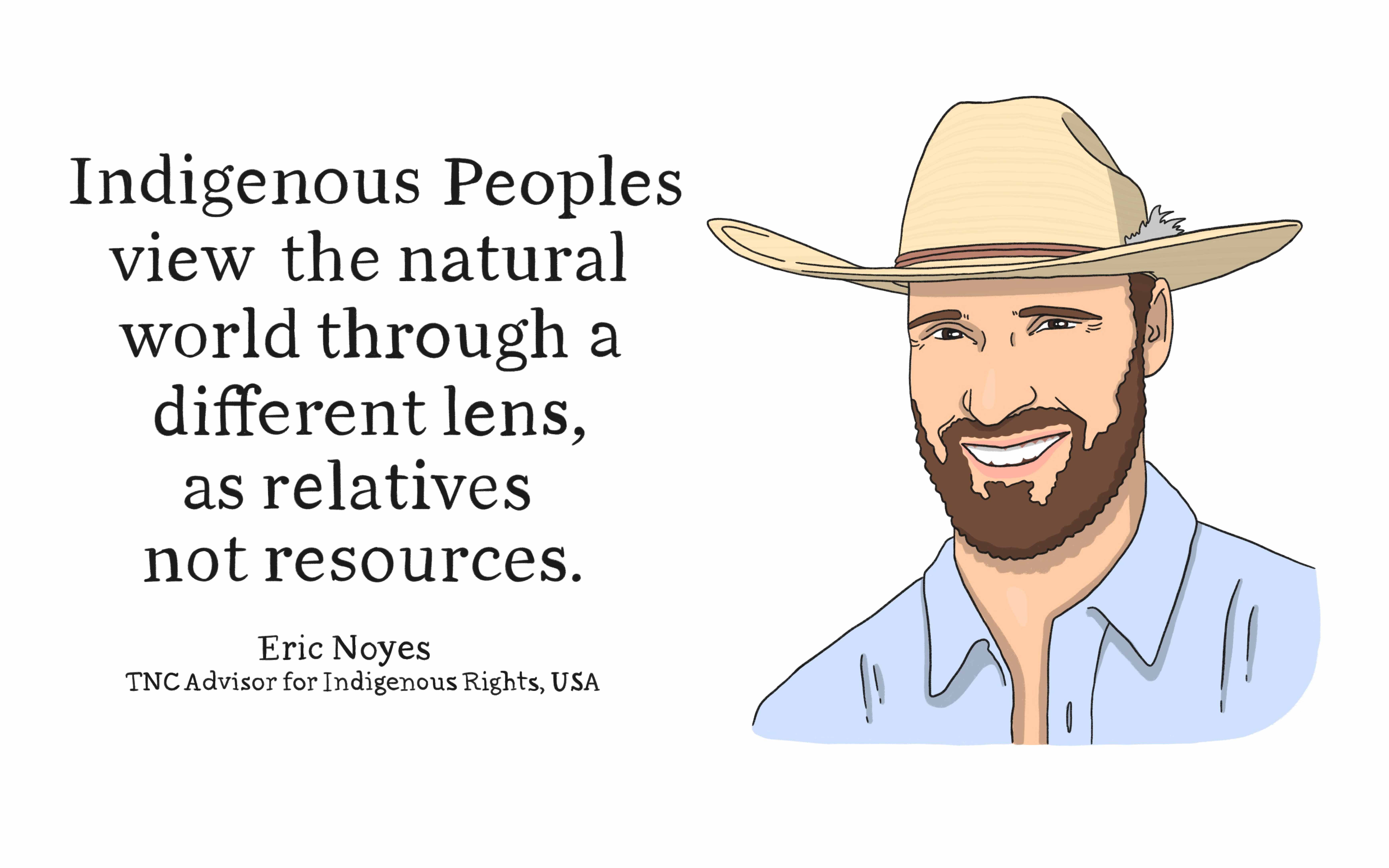
Advances in technology and policy continue to create hope.
And much-needed momentum. There’s a lot to be excited about in tech, ranging from steady improvements to the totally disruptive (no, ChatGPT is not writing this article).
Advances in clean energy production, energy storage and energy efficiency are helping shift economies away from fossil fuels. New policies and agreements are helping ratchet this up: At the UN’s COP28 climate conference, 117 countries pledged to triple renewable energy capacity and double energy efficiency by 2030.
[We’re] applying innovative methods and technologies to scale nature-based solutions like coral reef restorations, mangrove plantings, seagrass and algae that reduce methane emissions in cows, and the transition and demand for cleaner, renewable energy sources.
—Sarah Bayot, TNC Marketing Operations Manager, USA
In many regions of the world today, solar and wind power are the most affordable energy sources…This is making the shift to a clean energy economy—which would significantly lower greenhouse gas emissions—more and more possible.
—Idris Ajibola Mustapha, Agricultural Engineering Student, Nigeria
Seeing China and the U.S. negotiate on how they can jointly address the climate crisis gives me great hope. I think policy is so important, and these two countries have an outsized influence.
—Stephanie Koder, TNC Bezos Earth Fund Director, USA
The answers lie with a diversity of voices.
The climate crisis and conservation challenges are not just environmental issues, but human ones, health issues, inequities and injustices. A “big tent” approach isn’t big enough; why even have a tent when we desperately need everybody?
Diversity, inclusion, equity and justice are not buzzwords or nice-to-haves; they are where the solutions truly are if we are able and willing to listen and broaden our understanding.
It’s urgent that we listen to those who have long been excluded. Indigenous Peoples and local communities must have a seat at the table and an opportunity to lead.
There are Peoples on the planet who see and understand the biosphere we live in very differently from those who created global climate change. Indigenous Peoples view the natural world through a different lens, as relatives, not resources.
—Eric Noyes, TNC Senior Advisor for Indigenous Rights, USA
I come from a rural community where we had the largest uranium spill in the country, so I have a deep sense of environmental justice. By working on a just transition [to renewable energy], methane reduction and pollution directly in New Mexico, I hope to better not only my community but all New Mexico communities that have faced similar problems.
—Samantha Salazar, Clean Energy Policy Fellow, USA
[There is a] growing understanding that we need nature and our well-being and health are inextricably tied together.
—Sarah Bayot, TNC Marketing Operations Manager, USA
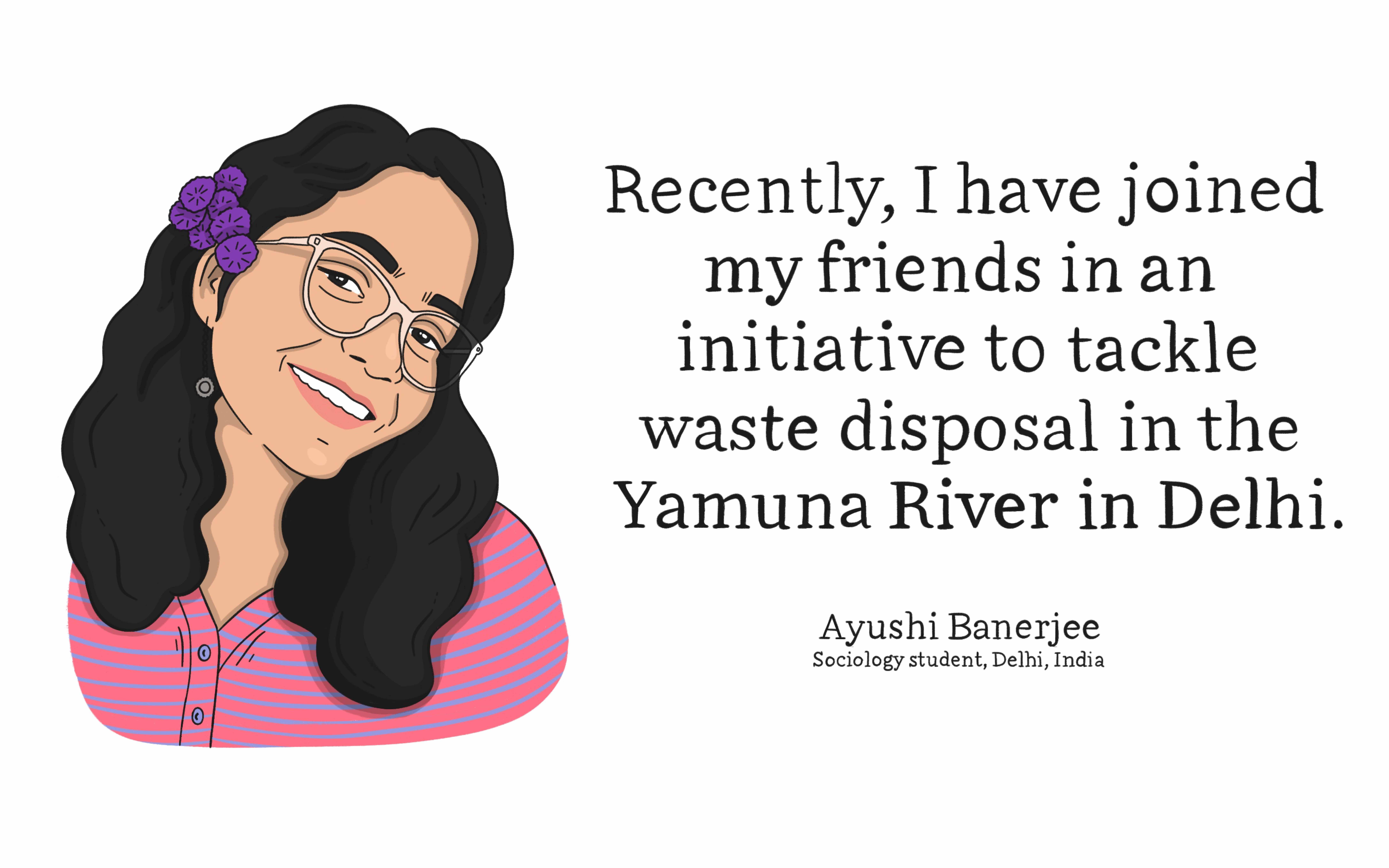
Current leaders are struggling to prioritize the planet.
Young and emerging leaders recognize that despite a lot of progress across climate and conservation, the political will to champion the bold action scientists say we need is too often an uphill battle.
The reasons are varied, which in itself can be dispiriting. A common thread was how war and conflict, terrible in their own right, have the added effect of soaking up political leaders’ finite time/attention, funding and political capital.
Even the most significant policy wins for nature can be clouded by the political challenges of implementing them, as we’re seeing in the year that’s passed since the world’s biggest deal for nature.
What makes me worried is that a lot of decision-makers all around the world are not giving enough push to the plans that will save our world.
—Mostafa Mohammed, Cultural Heritage Conservator, Egypt
[There is so much] conflict and strife continuing all over the world. How can we come together to face the climate and biodiversity crises and reach common goals when there is so much division?
—Paola Stuparich Nouel, TNC Climate Adaptation Fellow, USA
Governments around the world are not taking the threat of climate change seriously enough, or not believing it is even a threat to begin with.
—Iain Watt, TNC Business Analyst, USA
The absence of political will is the reason why so many governments worldwide are not treating the climate catastrophe seriously enough. They are putting short-term financial gain ahead of the planet's long-term health.
—Idris Ajibola Mustapha, Agricultural Engineering Research Assistant, Nigeria
The clock is ticking, which can motivate or disempower.
The world has set ambitious goals for climate action and biodiversity protection by 2030, and progress is still too slow. The emerging leaders we heard from are not immune to associated feelings of dread. Of course, you don’t need to have a career in climate change or conservation in order to feel climate anxiety.
Climate change isn’t just a phenomenon or a theoretical challenge. It’s heavy, maddeningly unfair and potentially trauma-inducing. A less visible danger is how it can disempower us from acting or staying engaged on the issue. By focusing on solutions, many of which exist right now in nature, we can work with this anxiety and stay motivated.
The progress is too slow; I don't know if we as a human race will be able to handle the consequences of our negative impact on the planet.
—Thaís Correia de Mello Oliveira, International Relations Student, Brazil
The more aggressive weather patterns this past year are making me worried that climate change is accelerating even faster than scientists predict.
—Iain Watt, TNC Business Analyst, USA
I worry about the scale and urgency of the change we need to make and if we'll be able to achieve the transformational change we need for people and our planet in time.
—Ginny Lindberg, TNC Operations Specialist, USA
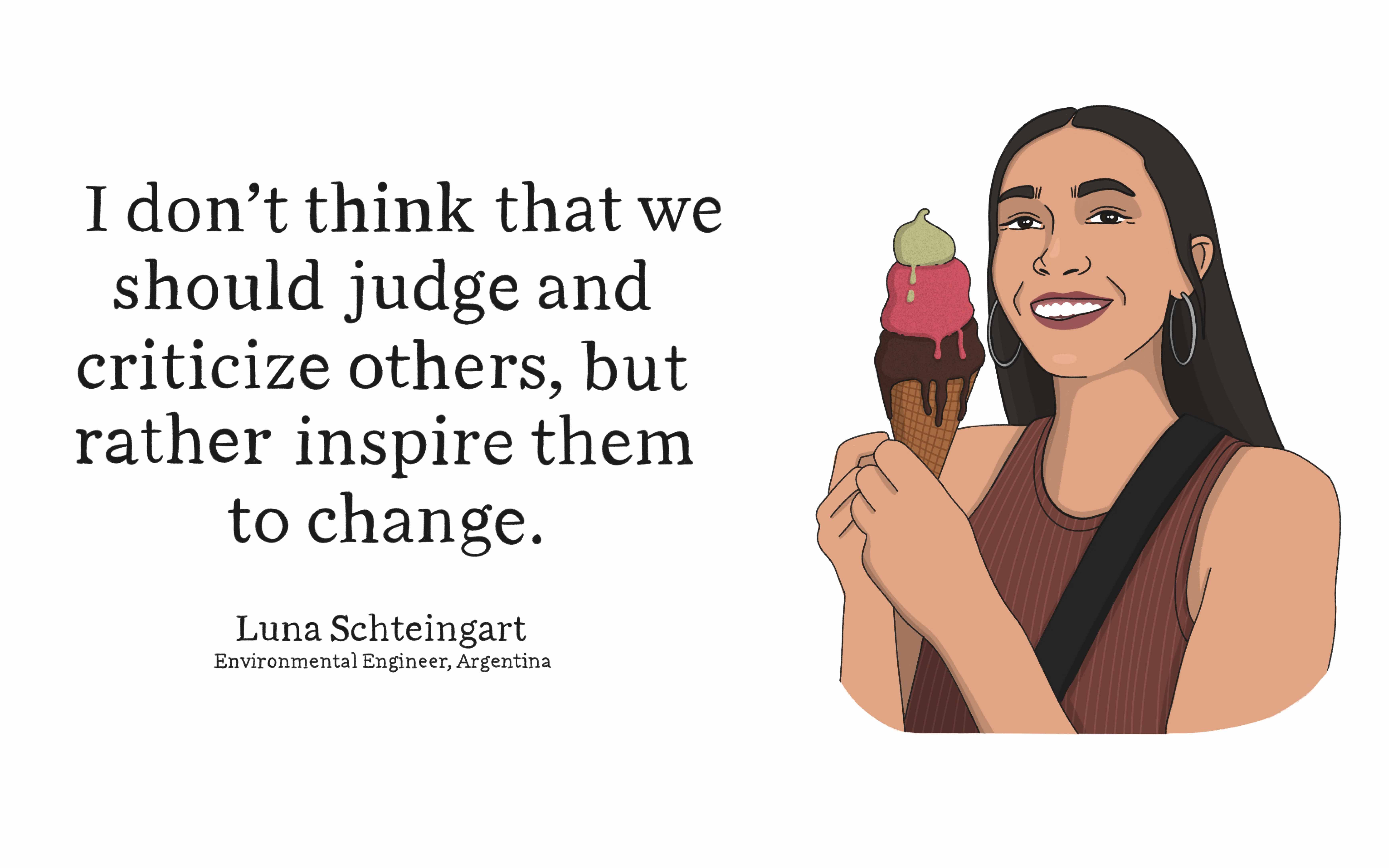
Learn More about Actions You Can Take
- Have productive conversations about climate change
- Calculate greener swaps you can make
- Stand up for nature—and for future generations
Every action matters.
Every ounce of carbon we avoid emitting, every fraction of a degree that we prevent from warming, every day sooner that we act matters. Yes, we need more big-scale national and global action, but we also need local and individual actions of all sizes. This is another area where the next generation of leaders are stepping up and inspiring us.
One of the most important things we can do is talk about climate change and its solutions with family and friends.
Recently, I have joined my friends in an initiative to tackle waste disposal in the Yamuna River in Delhi.
—Ayushi Banerjee, Sociology Student in Delhi, India
My partner and I … monitor our electricity and gas usage, try to avoid using unnatural substances and chemicals, pick up trash and are debating with our landlord about whether or not we can have chickens (we're losing).
—Ana Sanchez, TNC Talent Manager, USA
I am getting involved with my town's city council and parks and recreation department to encourage the intentional inclusion of more green spaces and density.
—Reagan Roth, TNC Procurement Specialist, USA
I'm researching river pollution in my city, Buenos Aires (Argentina), which is one of the greatest environmental and social issues that we are facing. I also try to change habits in my daily life, just as biking more and driving less, repairing old things and buying fewer new ones, conserving water and electricity, and trying to inspire people with my actions. I don’t think that we should judge and criticize others, but rather inspire them to change.
—Luna Schteingart, Environmental Engineer, Argentina
I try to help my friends and family understand climate change and take action in a welcoming and supportive way. I also volunteer to help refugees because I know how climate is creating more and more refugees globally.
—Stephanie Koder, TNC Bezos Earth Fund Program Director, USA
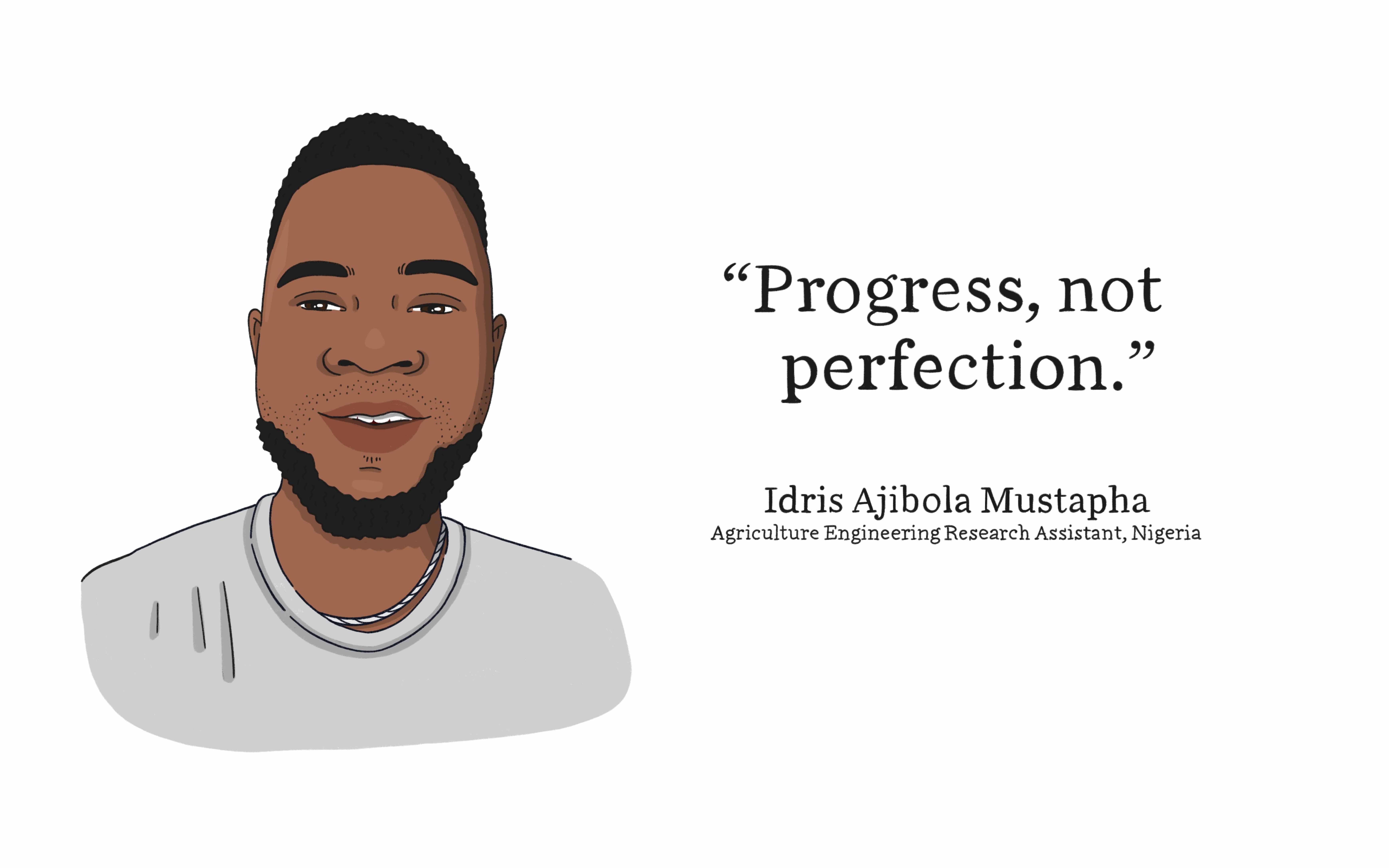
We have to strive for progress, not perfection.
Life isn’t perfect, even if it seems like it is on your friend’s Instagram feed. The conclusion of COP28 in Dubai was a recent exercise in accepting a less-than-perfect outcome in order to celebrate real progress and preserve momentum.
As we head into 2024, there are big opportunities to support climate and nature action at the ballot box, as well as advancing conservation action on the ground. A great reminder from young leaders from around the world: keep your eye on the prize—progress and momentum for the planet.
The phrase "Progress, not perfection" represents my desire that, in 2024, we will prioritize moving forward on critical challenges, even if that means falling short of perfection.
—Idris Ajibola Mustapha, Agricultural Engineering Research Assistant, Nigeria
I don’t expect 2024 to be the year where everything gets fixed. [But] while big changes may not happen, progress is what’s needed to get there, and I hope we can do a lot of that this upcoming year.
—Dani DeVeer, Marine Biology Graduate Student, USA
Let's Make Breakthroughs Break Through
The climate and biodiversity crises are interconnected and daunting. But by working together, we can overcome the barriers to the solutions our planet needs. Get our monthly newsletter and join a community of changemakers.



